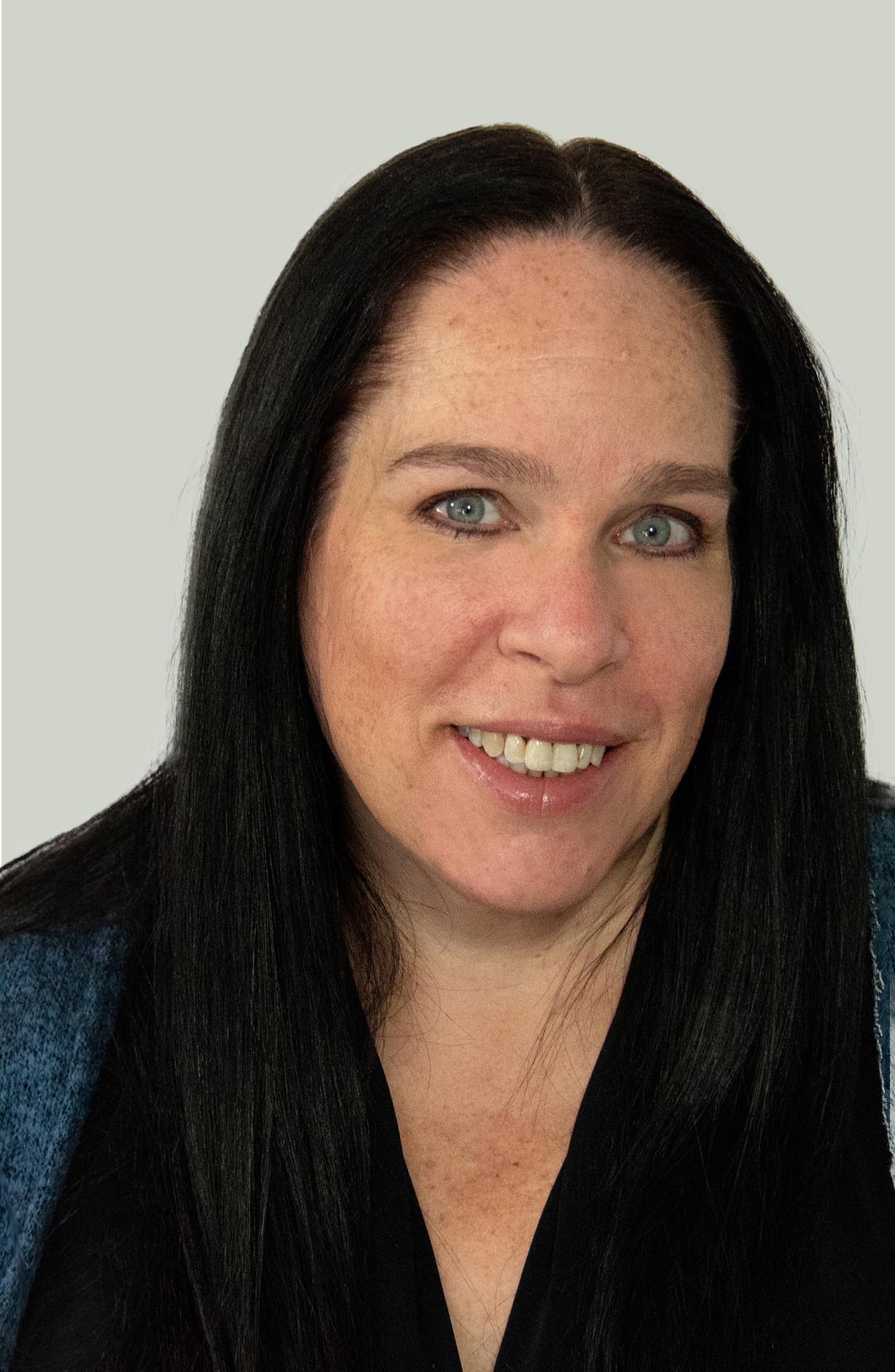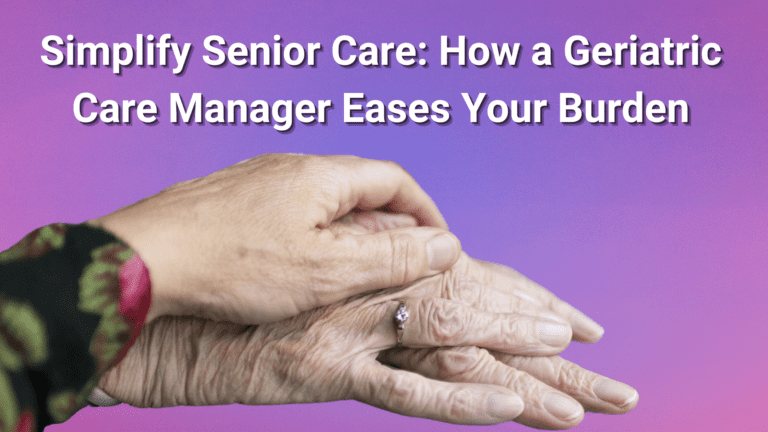Feeling overwhelmed trying to balance your life while caring for an aging loved one? You’re definitely not alone. Many children of senior parents find themselves struggling with parents who might be difficult or resistant to care. Imagine if someone could step in and handle the toughest parts for you. That’s where a geriatric care manager (GCM) or care coordinator comes in—think of them as a professional family member, blending healthcare expertise with a big heart. This allows you to just be the son or daughter, and have a trusted expert helping your family make decisions together.
What Does a Geriatric Care Manager Do?
Health Care Coordination: your mom has a doctor’s appointment next week, but you’re swamped with work. A Geriatric Care Manager coordinates with your senior’s healthcare team, ensuring your mom gets there on time, and takes notes, picks up prescriptions and manages any follow ups. No more last-minute scrambles or forgotten appointments.
Navigating Resources: Remember the time you spent hours trying to find the right home health agency or affordable medical equipment for your dad? Geriatric Care Managers do this daily. They have tons of contacts inside the community, from healthcare professionals, benefit coordinators, financial planning, and more. It’s like having a personal guide through the maze of elder care options.
Advocacy: When your loved one is in the hospital, it can be intimidating to push doctors and nurses to get the care your parent deserves, navigate their medical jargon and advocate for their health care needs. They make dealing with the healthcare system less overwhelming.
Care Coordination: Think of a Geriatric Care Manager as the conductor of an orchestra. They ensure that doctors, specialists, caregivers, and family members are all in sync, providing seamless, comprehensive care for your loved one. They wrangle all the senior care resources needed for quality of care.
Improving Quality of Life: Whether it’s rearranging the furniture to prevent falls or organizing a weekly bingo night, Care Coordinators focus on enhancing daily life. They can recommend adaptive and smart home technology to improve the quality of care. They’re not just about medical care or activities of daily living; they’re about making every day a bit brighter and safer.
When Should You Hire a Geriatric Care Manager?
Your aging parent is doing well, mostly independent, but you start noticing slight changes. Maybe they experienced a few falls lately. Perhaps their doctor mentions a new diagnosis or a change in their health status. This is the perfect time to bring in a care manager. It’s like having your own senior care concierge before any crisis arises. They can help you understand available resources, costs, and options. Here are some key areas they cover:
Day Care and Rehab: They can explain what adult day care services offer and what types of rehab programs might be available. They help you understand terms like “short-term rehab” and find the best fit for your loved one’s needs. They know the care facilities that offer better quality care than others.
Respite Care: Sometimes you need a break. Care Coordinators can find respite care options, and arrange the necessary services to give you some ‘you’ time to prevent burnout and recharge.
Home Care Services: Do you and your loved one prefer to age in place? Geriatric Care Managers know what kind of care can be provided at home and how much it will cost. They can help coordinate a team to ensure they house is safe for your loved one, like getting grab bars and non-slip flooring where needed. They help arrange everything from basic assistance to skilled nursing care.
Paying for Services: A common misconception is that Medicare covers long-term care. A Care Manager can clarify what Medicare and Medicaid cover, the differences between them, and what your insurance will pay for. They help you understand what costs might come out of pocket.
Discharge Planning: When your loved one is ready to leave the hospital, time is of the essence. GCMs ensure that all discharge-related services are arranged quickly, working with Medicare or your insurance company to meet their timelines.
Legal Documents: GCMs ensure your loved one has a health care proxy, power of attorney, and other necessary documents in place. They check that these documents are current and appropriately witnessed.They can refer you to attorneys and experts to get all your documents in place.
End-of-Life Planning: They facilitate conversations about end-of-life wishes, making sure the designated proxy understands their responsibilities. They also ensure that the physician has a copy of the necessary documents.
Insurance Requirements: If your loved one has long-term care insurance, Care Coordinators know what’s required for the policy to begin coverage and help you navigate the process.
Financial Planning: They help assess available resources to pay for services, determine what the family can afford, and plan who will pay for what. They can also recommend well respected senior financial advisors.
Challenges with Dementia: For families dealing with dementia, Geriatric Care Managers are a godsend. They help navigate the tough conversations, such as when you are concerned with your senior’s driving and manage care, providing a calm, objective presence in emotionally charged situations.
How Seniors and Families Benefit:
Reduced Hospitalizations: Studies show that Geriatric Care Managers significantly reduce hospital readmissions by closely monitoring health and coordinating care. By managing health proactively, Geriatric Care Managers help prevent emergencies that lead to hospital stays.
Enhanced Care Quality: Families with Geriatric Care Managers report higher satisfaction with care quality. Geriatric Care Managers create tailored care plans, ensuring that each individual’s unique needs are met, leading to better health outcomes and a higher quality of life.
Cost Savings: While hiring a Geriatric Care Manager might seem like an added expense, they often save money in the long run by preventing hospitalizations and streamlining care. The savings from reduced medical bills and improved efficiency can offset the cost of a Geriatric Care Manager.
Family Satisfaction: Families felt more at ease knowing a Geriatric Care Manager was involved. The reduction in stress and improved communication were key factors in their satisfaction.
By hiring a Geriatric Care Manager, you’re not just getting a care manager—you’re gaining a dedicated partner in your loved one’s care journey. If you have any questions or want to learn more about how a Care Coordinator or Geriatric Care Manager can benefit your family, don’t hesitate to reach out to me.

From a young age, Stacey’s link to the senior care industry grew alongside her mother’s work at a nursing home, where she often accompanied her. By her early teens, she secured her first official job at a nursing home, laying the foundation for a profound journey in senior care spanning over four decades. Her roles varied from opening assisted living and memory care residences to working in nursing homes and independent senior living communities. As the former Director of Fun for 300 independent seniors, she expertly organized daily events and trips. Stacey’s unwavering passion, nurtured by her family, and professional dedication as a recreation therapist, reflect her deep commitment to preserving the dignity and well-being of seniors.
Stacey’s senior care expertise has been recognized by the media including U.S. News and World Report and Care.com.
Stacey and her husband Bryan are the owners of the senior in-home care agency A Place At Home – North Austin.




